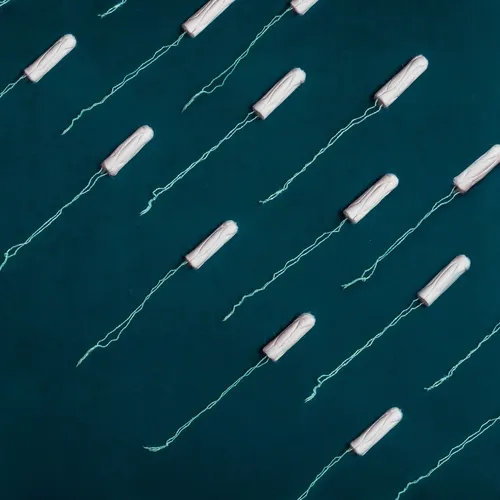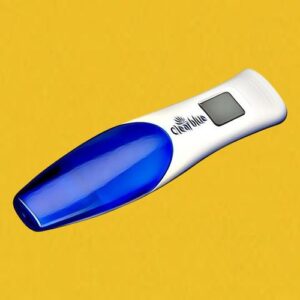It’s a common question many women ponder at some point – can you get pregnant on your period? The short answer is it’s highly unlikely, but not completely impossible in rare cases. Understanding ovulation and your menstrual cycle timing is key to unlocking whether conception during menstruation could occur.
Menstrual Cycles and Ovulation
Ovulation refers to when the ovary releases a mature egg mid-cycle. The average cycle length from the first day of one period to the next is 28 days, but can range from 24-35 days normally. Despite the myth, ovulation doesn’t always happen on day 14 but normally occurs from day 12-21. After ovulation, the egg survives 12-24 hours in the fallopian tube waiting for sperm.
Unprotected sex 5 days before to 1 day after ovulation poses the highest pregnancy risk since sperm survives 3-5 days inside a woman. You’re most fertile during ovulation and the preceding 5 days, called the fertile window. After ovulation, menstruation follows 12-14 days later if fertilisation didn’t occur, lasting 4-5 days on average.
Conceiving During Your Period
It’s nearly impossible to get pregnant on your period with regular cycles. Here’s why:
- Depending on when intercourse occurs during menstruation, ovulation is still at least 7 days away in a standard cycle. It’s unlikely sperm would survive that long. However, if you have very long periods (>5 days) but short cycles (<24 days), you could ovulate on day 7 while still menstruating, allowing conception.
- Irregular cycles make conception timing challenging as ovulation is unpredictable. Contraception is critical if avoiding pregnancy with irregular menstruation.
- Any mid-cycle or ovulatory bleeding could be mistaken for a period when in fact it indicates peak fertility. Knowing your unique menstrual patterns helps avoid this confusion.
- If using contraception like the pill properly, getting pregnant during your period is highly unlikely.
Detecting Ovulation
To maximise your chances of conception, it’s critical to accurately pinpoint your ovulation date each cycle. Here are some tips for ovulation detection:
- Ovulation predictor kits – Urine test strips detect rising levels of luteinising hormone 1-2 days before ovulation. Test from day 10 of your cycle.
- BBT charting – Your basal body temperature rises 0.2-0.5°C after ovulation due to progesterone. Record your temperature first thing every morning to spot the shift.
- Cervical mucus – Estrogen rise before ovulation causes wet, slippery, egg-white-like mucus. Check your discharge daily and record changes.
- Ovulation pain – Some women experience mild abdominal cramping or twinges called mittelschmerz around ovulation. Track any sensations.
- Ovulation calculator – Use the first day of your last period and average cycle length to estimate your fertile window.
- Ovulation microscope – Checks saliva samples for fern-like crystal patterns signalling ovulation within 3 days.
Interpreting Results
When using ovulation detection kits, read instructions closely as results can differ between tests. Some show two lines when the LH surge is detected while others display a smiley face.
Look for the most fertile-quality cervical mucus which is clear, slippery, and can stretch an inch between fingers. Cloudy discharge indicates lower fertility.
Record your habitual waking temperature before getting up each morning at around the same time for accurate BBT charting. Detecting a thermal shift confirms ovulation.
Maximising Conception Chances
Once you’ve identified your fertile window, you can optimise your chances through well-timed intercourse:
- Have sex every 2-3 days starting 5 days before your expected ovulation. This ensures fresh sperm is regularly available.
- Plan more frequent intercourse closer to ovulation – try daily or every other day in your final fertile days.
- Note that sperm health impacts conception too. Support yours by avoiding excess heat, alcohol, smoking, and medication.
- Adopt a fertility-boosting lifestyle with a nutritious diet, regular exercise, low stress, sound sleep, and supplements like folic acid.
- Some suggest orgasm helps uptake of cervical mucus to aid sperm. Also try lying down after sex.
- Consider your cycle length too – shorter cycles have a smaller fertile window so plan sex accordingly.
Conception Right After Your Period
It’s improbable to get pregnant one day immediately after your period ends, unless you have very short cycles and long bleeding. With normal cycles, pregnancy chances increase as you approach ovulation around day 12-21. If robust sperm is present by ovulation after period-end sex on say, day 7, conception could occur.
Conception Right Before Your Period
Having unprotected sex right before your period when ovulation already passed is very unlikely to lead to pregnancy. The further from ovulation intercourse occurs, the lower the conception odds since the egg survives briefly. With regular cycles, sex the day before your upcoming period has almost no pregnancy risk.
Maximising Conception Odds
While unlikely during menstruation, conception chances peak leading up to and on ovulation day since the egg is viable 12-24 hours then. Have sex from 5 days before ovulation up to 24 hours after for the highest pregnancy odds. Don’t worry if it takes several cycles – many couples conceive within 3-6 months. See your doctor if not pregnant after a year under 35 or 6 months over 35.
Zoom Baby is a leading supplier of Pregnancy Tests and Ovulation Test Kits





